The Most Frequently Taught Books in American Colleges and Universities
Want to get a leg up on the competition in college? Take a look at the books most commonly assigned and taught in college. The books here aren’t specific to any college major, but majors in the humanities and arts are likely to account for the presence of many of them. If you know what you might be majoring in, take a look at the course requirements and syllabuses for some of the required classes for that major. Read books on the syllabus early to gain an advantage in college, or simply to satisfy your curiosity for learning! Imagine entering college having already read an important computer programming textbook, or having already studied an important economic treatise. Doing so doesn’t mean you won’t have to read it again, but it will mean that you’ll be likelier to have a deeper understanding of the material than your stressed peers. In fact, it’s not unwise to e-mail professors and ask them if they know in advance some books that will be on the syllabus for a course that interests you. When you’re in college, as soon as the syllabus arrives (if not earlier, having asked a professor in private) seek out the course materials.
When I was in college, one of my professors confessed that “NO ONE does all the reading. Even the best students.” That may well be true, for there’s simply so much reading to do. But knowing in advance what you might be asked to read allows you to stay ahead of the game. And students who are ahead of the game are likelier to succeed. Sure, you’ll look like a nerd, reading Plato’s Republic in high school or the summer before college. But hey. Nerds are the ones who live successful, fulfilling lives. Why? Because they love to learn. They’ve found a passion and it brings them meaning and satisfaction!
Here are some of the most commonly assigned books at colleges and universities in the United States. Ready to get reading?
The Elements of Style, by Strunk and White
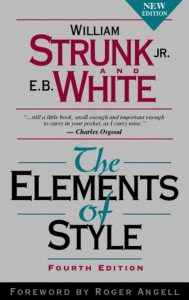 This one’s a classic, and a no-brainer for students who are heading off to college. Ask any teacher in America their views on the state of student writing, and pretty much universally, they’ll tell you that students are woefully inadequate writers. They hate writing. They hate reading. They don’t practice it. They don’t experiment with it. They dread it and avoid it and go through the motions with it. And what’s worse, teachers today are instructed to place far more value on “voice” and on “effort” and “originality” rather than on composing good prose. So students’ grammar and composition mistakes and rhetorical inelegance often goes unaddressed. Enter The Elements of Style. This classic guide to grammar, rhetoric, and composition is a slim tome, and it’s one of the most frequently assigned books in college. Read it now. Read it every year. Internalize its principles! With with clarity and conviction. Enliven your prose with the RIGHT noun, the RIGHT verb, the RIGHT adjective, the RIGHT structure. Language is the most powerful vehicle for communication that we have. When you master language, you master thought, and when you master thought, you impact reality.
This one’s a classic, and a no-brainer for students who are heading off to college. Ask any teacher in America their views on the state of student writing, and pretty much universally, they’ll tell you that students are woefully inadequate writers. They hate writing. They hate reading. They don’t practice it. They don’t experiment with it. They dread it and avoid it and go through the motions with it. And what’s worse, teachers today are instructed to place far more value on “voice” and on “effort” and “originality” rather than on composing good prose. So students’ grammar and composition mistakes and rhetorical inelegance often goes unaddressed. Enter The Elements of Style. This classic guide to grammar, rhetoric, and composition is a slim tome, and it’s one of the most frequently assigned books in college. Read it now. Read it every year. Internalize its principles! With with clarity and conviction. Enliven your prose with the RIGHT noun, the RIGHT verb, the RIGHT adjective, the RIGHT structure. Language is the most powerful vehicle for communication that we have. When you master language, you master thought, and when you master thought, you impact reality.
Plato’s Republic
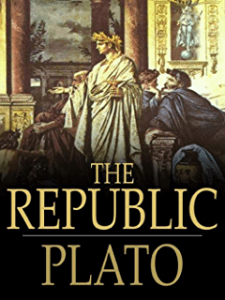 This one just gets better with age. Think there’s no wisdom to be found in Greek Socratic dialogues written 380 years before the birth of Christ? Think again. The Republic is one of the most influential and important texts in philosophy and political theory in the world, and it’s one of the most commonly taught and assigned books in college. In the Republic, Socrates ponders and discusses questions of government, social organization, rule by a hypothetical philosopher-king, the theory of forms, the immortality of the soul, and the place for philosophy and poetry, and poets and philosophers, in a society. Engage with age-old questions of justice, political organization, and the social fabric. Read the book that the world’s greatest philosophers all, without exception, will have read. It’s one of the top books assigned to students at colleges and universities in the U.S., and it’s a rich and fulfilling read that will sure to provoke thought. Isn’t it incredible that men who lived so long ago could think so deeply about the world around them? Our society owes much to Greek society. Why not turn back to one of the greatest sources of philosophical wisdom and get a head start on college with Plato’s Republic?
This one just gets better with age. Think there’s no wisdom to be found in Greek Socratic dialogues written 380 years before the birth of Christ? Think again. The Republic is one of the most influential and important texts in philosophy and political theory in the world, and it’s one of the most commonly taught and assigned books in college. In the Republic, Socrates ponders and discusses questions of government, social organization, rule by a hypothetical philosopher-king, the theory of forms, the immortality of the soul, and the place for philosophy and poetry, and poets and philosophers, in a society. Engage with age-old questions of justice, political organization, and the social fabric. Read the book that the world’s greatest philosophers all, without exception, will have read. It’s one of the top books assigned to students at colleges and universities in the U.S., and it’s a rich and fulfilling read that will sure to provoke thought. Isn’t it incredible that men who lived so long ago could think so deeply about the world around them? Our society owes much to Greek society. Why not turn back to one of the greatest sources of philosophical wisdom and get a head start on college with Plato’s Republic?
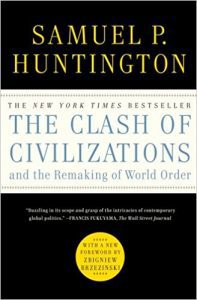 The Clash of Civilizations, by Samuel P. Huntington
The Clash of Civilizations, by Samuel P. Huntington
With a title like The Clash of Civilizations, this classic by Samuel P. Huntington is sure to be a fascinating, gripping read. As depressing as it is, conflict between human beings has existed since time immemorial, and conflicts between ideologies, communities, and nations don’t seem to be going anywhere any time soon. However, the reasons for conflict, and the shape of the conflict, have undergone subtle alterations throughout time, place, and history. Huntington posits that in a post-Cold War society, cultural and religious identities are THE most common reasons for clashes between civilizations. And in 2017, his thesis rings true. People in America and in countries around the world are increasingly divided along racial, religious, political, and cultural lines. For a thought-provoking and timely read, check out The Clash of Civilizations. It’s one of the most frequently taught books in college: see why for yourself!
Leviathan, by Thomas Hobbes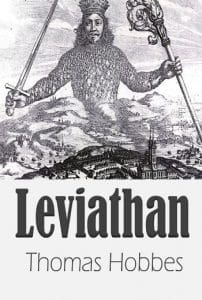
An old one, but a good one, especially for those interested in how governments take shape in (and shape) civilizations from which they arise. Hobbes wrote Leviathan during the English Civil War of 17th century, but his ideas are still relevant today, as many of them form the basis for political ideologies whose influence we still feel. Hobbes believed that the only way to avoid internal strife, discord, and civil war was to have a strong, united government. Without a centralized government, Hobbes feared, anarchy and civil war would occur. Indeed, we as Americans, who have also experienced a Civil War, have not fully moved beyond the issues that caused the Civil War to begin with. American government, though in some ways shaped by Hobbes’s ideas, deviates from those ideas in several important ways. Separation of powers, for example, is something Hobbes rails against. He is also in favor of censorship in the press! Still, it’s important to examine why we believe what we believe, and what the role of government is in human society, and whether we can make it better. For an insightful glimpse into one of the most important political texts ever written, check out Thomas Hobbes’s Leviathan!
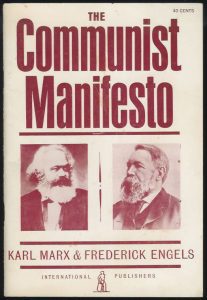 The Communist Manifesto, by Karl Marx and Frederick Engels
The Communist Manifesto, by Karl Marx and Frederick Engels
In America especially, “communist” is a loaded term, but chances are the people throwing it around haven’t even read The Communist Manifesto. Whether or not you agree with Marx’s judgments of civilization and his prescription for an ideal political philosophy, it’s important to understand his ideas before you attempt to address them. That’s why The Communist Manifesto is one of the most frequently assigned books in colleges and universities across the nation, and particularly in the Ivy League. Read Marx’s ideas for yourself and consider how they still circulate and manifest themselves today. By educating yourself on this economic theory, you’ll awaken to realities of class that you may previously have not considered. Whatever you believe, it’s important to formulate your opinions on the basis of reason! How much do you really know about capitalism? About communism? If you hope to speak articulately about issues of economics, The Communist Manifesto is one among many vital texts, a lightning rod for debate that cannot be ignored.
Democracy in America, by Alexis de Tocqueville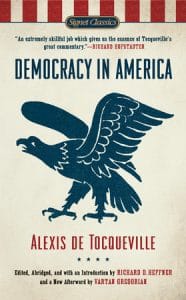
Written by a French man, Democracy in America is a classic study on how and why republican democracy works in the United States of America when it has failed to work as effectively in other nations. In 1831, Tocqueville and another writer, Gustave de Beaumont, traveled to America with the intention of studying the prison system. Along the way, Tocqueville gathered his impressions on American society, history, and government, and wrote his book, Democracy in America, which offers an outsider’s perspective on our Constitution, system of government, and societal struggles and triumphs. It’s a must-read outside look into American values and societal structure. Specifically, Tocqueville inquires into the Puritans, the Federal Constitution, and the role of women in American society. Sometimes it’s important to turn to an outside observer for insights into your own political situation and culture. For this reason, and for the wealth of insights it provides, Alexis de Tocqueville’s Democracy in America is one of the most frequently assigned books in colleges and universities across the United States. See for yourself what all the fuss is about!
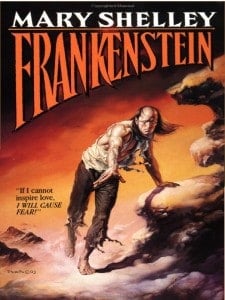 Frankenstein, by Mary Shelley
Frankenstein, by Mary Shelley
The number one fiction book taught in colleges and universities across America is Frankenstein, by Mary Shelley. Isn’t it impressive that a sixteen-year-old girl challenged to write a horror story produced a text with such a broad and lasting appeal? Frankenstein is a timeless work, and the themes it addresses are as deep and significant and the story it tells is gripping and engaging. What is the purpose of science? Rationality? Can and should man play God? Who or what do we classify as monstrous or “other” and why? How does storytelling function in society, and to what end? These and other questions are ripe for exploration in Shelley’s gorgeously-written and exciting Gothic novel. It’s very likely that you’ll have to read Frankenstein in college, if you haven’t had to read it already. Why not start thinking about your views on the novel now?
Letter from a Birmingham Jail, by Martin Luther King, Jr.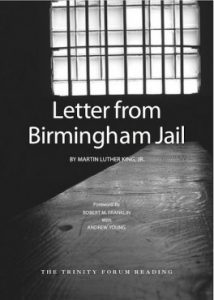
Not so much a book as a vitally influential text, Dr. Martin Luther King, Jr,’s Letter from a Birmingham Jail is a critically important document in our nation’s history. In the letter, King outlines his philosophy and strategy of nonviolent resistance to rampant racism and discrimination in American society. King wrote the letter in the margins of the newspapers that were the only reading he was allowed in jail, and gave the fragments of text to one of his visitors. Writing in response to a group of clergymen who argued that the Civil Rights Movement should be fought in the courts, and not on the streets, King, himself a reverend, took a theological position against the clergymen’s argument. The resulting text is an essential piece of American history, and it contains ideas that resound far beyond the Civil Rights Movement of the 1960s. Race relations in America today are far from perfect, and advocates for equality and social and political and racial justice should turn to this text for inspiration, if they haven’t done so already.
* * *
That’s it! For more book recommendations and reading lists, as well as a plethora of SAT and ACT prep tips, check out the rest of our blog. Looking for 1-on-1 ACT or SAT prep tutoring to help you with the college application process? Want to join an SAT or ACT group class? Contact us today! We’re perfect-scoring tutors with years of experience helping students achieve the SAT and ACT scores they need to make their dreams a reality!
